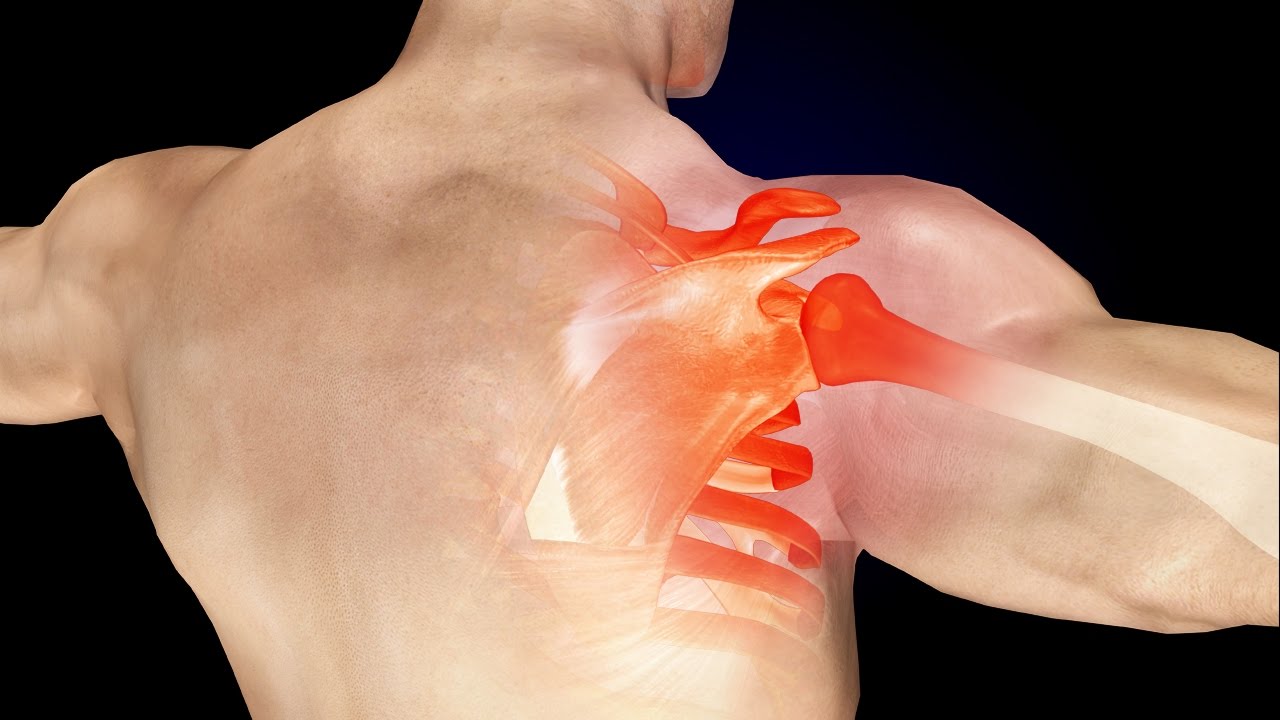Geriatric Physiotherapy
The geriatric physiotherapy in Dwarka for this age group should be applied carefully, because it is such a specific phase. Both common problems at all ages and pathologies typical of this phase of our lives are potentially more common and can cause serious reflexes that require specific treatments.
With the advent of old age, there is a greater fragility of the individual to infections, cardiovascular diseases, tumors, osteoporosis, among others. That is why geriatric physiotherapy in Dwarka is a great ally for this moment of life.
The third age is the stage of life in which the reflexes of diseases and illnesses become more incisive on the health of patients.
Know the benefits of Geriatric Physiotherapy
Removing the probability of incapacity and providing quality of life are the main goals of preventive geriatric physiotherapy, because of the natural aging that affects the muscles, bones, and limbs of the body, in addition to internal organs, the tendency is that the movements and functionality is limited. In addition, prevention is important, since the treatment of diseases in this period is always a little more delicate. However, once illnesses arise or accidents happen, it is important to treat very carefully.
How Our Geriatric Physical Therapy Works
Physiotherapist in Dwarka for the elderly treats dysfunctions, with the aim of recovering movements or injuries in people with more advanced age. This type of treatment requires a high degree of professional specialization, in addition to an individual and specific treatment.
Objective of Home Physiotherapy
The home physiotherapy in Dwarka is essential for geriatric patients, especially those who are sick or injured, because of the difficulty and even the impossibility of movement and their displacement.
The Physiotherapy centre in Dwarka offers the best services of geriatric physiotherapy, counting on professionals fully qualified and with ample experience, everything so that the an elderly person has maximum comfort.
Home care service in physiotherapy
1.- Concept:
This physiotherapy services at home in Dwarka is aimed at major subsidiaries of a physiotherapeutic treatment as a consequence of the different pathological processes that occur in this vital stage and in the search for greater independence of the patient, individual.
Aging is a biological process that progressively deteriorates the mature organism in apparently healthy individuals. Physiotherapy in Dwarka is aimed at alleviating and delaying, as far as possible, this functional and physiological deterioration.
The general objective of home physiotherapy in Dwarka is convincing: to achieve a state of health in the 3 dimensions:
- Physical: treatment in physical capacity
- Psychic: concerns, motivation to therapy.
- Social: possibility of social relations (mobility, communication, motivation before other people)
2.- Objectives:
General objectives of home physiotherapist in Dwarka:
- Delay of physiological deterioration.
- Search for motivation and patient collaboration.
- Achieve the highest degree of independence in daily activities (washing, combing, going down stairs) and functionality, as well as social integration in their environment.
- Avoid hospital admissions and other more traumatic alternatives for the elderly.
Specific objectives of home physiotherapist in Janakpuri:
To prevent deformities ("senile" stooped posture) and the pain derived from it
- To avoid muscle weakness as much as possible, as well as the feared osteoporosis avoiding sedentary attitudes
- To keep the joints in good condition.
- Maintain the maximum strength and muscular strength before intense exercises within the age of the patient
Prevention and treatment of the alterations of the different systems done by physiotherapist in Dwarka are:
- Digestive: constipation, etc.
- Circulatory: reduce heart rate, lower blood pressure
- Respiratory: improve respiratory capacity
- Genitourinary: treat urinary incontinence
- Others: sensitivity, intellect, sleep.
3.- Equipment and material needed:
- Human resources: multidisciplinary team formed by the best physiotherapist in Dwarka, social workers, psychologists, etc. Fundamental family collaboration.
- Material resources
- Dependency: address of the individual, in a place of this the best conditioning for therapy.
- Materials: stretcher, canes, bandages, electrotherapy equipment, dry heat systems.
4.- Considerations in the domiciliary treatment:
Consult the medical data of the person to be treated to determine the work intensities and our objective.
- Check pulse and tension periodically.
- Regular and constant physical activity.
- Do exercises that involve the movement of the person.
- Special care with injuries.
- Perseverance, tenacity and patience to achieve the desired goal.
5.- Subsidiary patients of physiotherapy in Dwarka:
Patients with respiratory problems (both acute and chronic):
- Improve their respiratory capacity.
- Make them capable of facing a somewhat greater effort at rest without leading to fatigue.
- Clean the respiratory system of secretions.
- Give health advice (no smoking, fresh air)
Patients with rheumatological processes and osteoarthritis following activities are done by physiotherapy doctor in Dwarka:
- Relaxing, toning and analgesic massage.
- Improve joints and muscles.
- Postural hygiene.
- Tips to avoid major consequences.
Patients with neurological problems (hemiplegia, stroke, paraplegia, PC, Parkinson's)
- Reeducate their nervous system
- Give them the greatest possible mobility and sensitivity
- Achieve the greatest functionality in the activities of daily life.
- Observe and control the support systems (prostheses, canes, wheelchairs)
- Check the neurologist's revisions to see their evolution.
Patients with problems of urinary incontinence:
- Prevent it in the case of signs of onset.
- Toning exercises.
- Advice and considerations to avoid it as much as possible.
- Psychological support.
Patients who perform a superior physical activity (sport) within the age in which they are:
- Treat possible injuries derived from the activity (sprains, contractures, fractures)
- Control the intensity of the exercise.
- Advise about the possible problems that sport involves in excess.
- Encourage this type of activity among the elderly.
Patients who have suffered a trauma (bone, muscle, nervous), following point should be considered by top physiotherapist in Dwarka:
- Prevent from the factors that can cause the trauma: falls, stairs.
- Favor the recovery of the trauma with the least possible pain.
- Take the patient to the state he was in before the trauma (as much as possible)
Patients with impairment of the intellect (Alzheimer's):
- Dynamize the person suffering from dementia, as it is confined due to communication difficulties.
- Help in the process of "new learning of the environment"
- Collaborate with the family in adapting the home to the needs of the person.
- Improve their degree of independence.
6.- Sessions - duration - follow-up:
The sessions of the treatment are one per day with a duration between one hour - hour and a half, which will depend on the abilities of the person treated (fatigue, physical condition, motivation, interest) and of the maneuvers carried out.
The monitoring is carried out by home physiotherapist in Dwarka through a series of elements:
- Initial evaluation: here the initial state of the person is recorded (processes that afflicts, accompanying diseases, general physical state). Objectives are established.
- Follow-up report: progress is recorded and no progress is made towards achieving the goals.
- Report to the discharge: at the end of treatment the status of the person is established again.
7.- Clinical case: Parkinson's patient treated at home;
This case is an example (already treated case) of the steps that would be followed:
Sessions: one every 2 days.
- Duration of the session: one hour- hour and a half (variable in this space)
- Displacement: medium tourism.
- Materials: portable stretcher, portable electrostimulation device - analgesia, infrared lamp.
Practical advice for daily life:
- Get out of bed.
- Personal hygiene
- Dressing
- Working in the kitchen.
- Eating
- Changes in bowel habits.
- Control tremor
- Walk
- Talk
- Lie down
- Get up off the ground
- Make activities as independent as possible.
- Change position in the bed.
- Correct posture
To keep fit:
- Head and neck exercises.
- Exercises for shoulders.
- Breathing exercises.
- Exercises for hands.
- Exercises for feet.
- Exercises for legs.
Number of sessions: 10 sessions.
Improvements achieved: the patient manages to perform daily activities with greater independence, the tremor has decreased when moving and presents fewer difficulties when starting to walk. His motivation and mood is better because he is better able to fend for himself. He knows how to perform each exercise and is aware of the importance of these.
PAINFUL SHOULDER: WHAT IS IT AND ITS TREATMENT
DEFINITION
It is a functional deficit of the shoulder called omalgia, painful shoulder and scapular humeral periarthritis. Tendonitis of the rotator cuff is a pathology due to overuse (repetitive movement) that causes pain and disability in the shoulder and upper arm. It is often called "impingement" or bursitis.
ORIGIN
The vast majority of the time, the painful shoulder can be framed in:
- Pain due to irradiation, of neurological, vascular, cardiological or intestinal origin.
- Pains of articular and periarticular origin, including bursitis, tendinous pathologies (tendonitis and ruptures) and capsulitis.
CAUSES AND SYMPTOMS
Causes of this ailment can be jobs that require constant movements over the shoulder (signer, vinyler, painter, glazier, ...) or racquet sports (paddle, tennis), lifting weights, ...
Long sports workouts or repeated physical movements muscle-tendon groups can become inflamed. The result is: acute or chronic pain, local sensitivity and inability to
perform movements with the affected shoulder (dressing, driving, lifting things over the shoulder, ...).
TREATMENT
What we are looking for with the treatment is to reduce the inflammation and later to distend and strengthen the muscles that make up the rotator cuff. Inflammation is usually controlled with rest, ice and oral medication (anti-inflammatories).
It is essential to reduce, avoid or modify the activity that has generated the ailment (decrease physical activity, avoid the type of movements that cause us pain, swim less distances or avoid service on the head in tennis).
Once the inflammation has been controlled, your physiotherapy doctor in Dwarka will probably prescribe a stretching and strengthening program. At the beginning of the strengthening program, the application of ice on the shoulder after the exercises may be helpful. Stretching exercises are performed before strength exercises to warm and distend the cuff muscles.
Physiotherapist in Dwarka advises to moderate the training sessions and schedule adequate rest periods between them to prevent tendonitis.
The preheating and stretching exercises and strength exercises are also components of prevention. Paying immediate attention to pain in the shoulder and upper arm during training or after a session can prevent a chronic problem. The treatment of symptoms in the shoulder should be started as soon as they start.
STRETCHING EXERCISES
Stretching 1
Bring the affected member's hand to the opposite shoulder. Advance the shoulder slightly. You will experience a slight stretch in the affected shoulder.
Exercise 1
With your hand holding a dumbbell (thumb down), raise the extended arm to a 45º angle or as far as pain allows.
Stretch 2
Place the affected arm on the head, with the elbow facing upwards, with the hand extended toward the back of the opposite shoulder. Slowly bring your elbow bent back.
Exercise 2
This exercise can be done standing with a rubber band, or lying on the painful side with weights (see the drawing below). Begin with several repetitions of slow movements and progress with more weight or tension of the rubber.
Stretch 3
Bring the hand of the affected arm to the opposite shoulder. Advance the shoulder slightly. You should experience a certain stretch in the affected shoulder.
Exercise 3
Lie on a table with your elbow on the edge and your hand hanging, with a weight in your hand. Raise the weight parallel to the floor to the level of the table or head (keeping the back flat, without arching it). Raise the elbow towards the ceiling so that the shoulder blades are approached. Start with a small weight and increase progressively. Remember: the exercise must be slow and controlled.
With this type of exercise and stretching, you may feel some discomfort, but you should not feel pain. These methods can work on their own or require the complementary use of physiotherapy in Dwarka (ultrasound, electrical stimulation, etc.). The surgical solution to the problem is usually posed, if the treatment described is unsuccessful.
Physiotherapy: Importance For Your Health
Physiotherapy exists as a form of treatment for dysfunctions and disabilities thousands of years ago. It is considered a key treatment in the rehabilitation of patients suffering from debilitating conditions resulting from accidents or diseases.
Although there are references to the use of physical agents to prevent and treat diseases from very remote times, only with Hippocrates, in ancient Greece began to take the first steps in the development of physiotherapy as a profession.
Hippocrates used massages as a form of therapy to help recover and maintain the motor and functional abilities of the body.
Precisely because of the importance that massages have always had throughout the history of Physiotherapy, even today we continue to associate them with the Physiotherapist in Dwarka. However, the field of intervention of Physiotherapy and the techniques used by the best physiotherapist in Dwarka go far beyond massages.
What is Physiotherapy?
According to the WCHPT (World Confederation of Physiotherapy), it is defined as the area of health responsible for promoting, developing, maintaining and rehabilitating the mobility and functionality capabilities of people throughout their lives.
The main interest and objective of Physiotherapist in Janakpuri is to identify and maximize the quality of life and the potential of movement of each person in the areas of promotion, prevention, treatment / intervention, habilitation, and rehabilitation of health.
For physiotherapy in Dwarka, functional movement is essential for the person to be considered healthy.
The physiotherapist
When the function and mobility of a person are affected by pain, aging, injury, illness, disability and long periods of inactivity, the best physiotherapy doctor in Dwarka is the qualified health professional to do the complete medical review of the patient.
This exam is focused on the person as a whole, that is, the Physiotherapist in Uttam Nagar will consider not only the physical well-being as well as the psychological, emotional and social well-being in order to reach the diagnosis and elaborate the most appropriate treatment plan for each person.
Thanks to its deep anatomical and physiological knowledge of the body and movement, the Physiotherapy doctor in Dwarka promotes wellness, mobility, and independence in people from 0 to 99 years old.
From the Hippocrates massages to today, the techniques used in the best physiotherapy in Dwarka have evolved a lot. Each area of intervention of Physiotherapy has its own specialized techniques and based on scientific evidence. And in this complex world, today there are even specialized physiotherapist in Janakpuri in only one of the areas and within that area, in some specific diseases (for example: Parkinson's, cerebrovascular accidents, traumatic injuries of the knee, incontinence, etc ... ).
Areas of the Intervention of Physiotherapy
At physiotherapy centre in Dwarka, we are committed to everyone's health and we believe that the movement of the body is an essential element for health and well-being. For this reason, we know the importance that Physiotherapy has to maintain and recover health. Do not hesitate to contact a Physiotherapist in Dwarka if you feel that your mobility may be affected.
© Copyright drsarwarphysio



